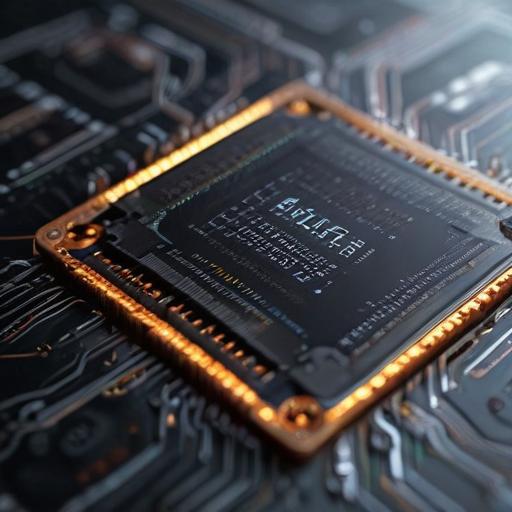Rigetti Computing has reported a profit for the first quarter, primarily driven by an accounting gain, although its revenue fell short of expectations as investors maintain a watchful eye on the short-term growth potential in the quantum computing sector.
The company disclosed its Q1 earnings following the close of the market on Monday. Rigetti achieved a profit of 13 cents per share on an adjusted basis, comparing favorably to a loss of 14 cents during the same quarter last year. However, its revenue declined by 51% to $1.5 million, significantly below Wall Street analysts’ projections of a loss of 5 cents per share with expected revenue of $2.6 million.
Notably, the profit included a substantial accounting gain of $62.1 million from the revaluation of stock warrants related to derivative warrant and earn-out liabilities, a non-cash transaction according to the company.
Rigetti’s Chief Executive, Subodh Kulkarni, spoke during the earnings call about the unpredictable nature of revenue recognition in quantum computing, stating, “Quantum computing continues to be in R&D mode.” He emphasized the ongoing development cycle within the industry, suggesting that a breakthrough, referred to as “quantum advantage,” may still be several years away. This reliance on research and development efforts means the revenue can be erratic, often stemming from government contracts or academic collaborations.
Furthermore, Kulkarni highlighted the potential impact of the National Quantum Initiative Reauthorization Act, which, if passed by Congress, could provide much-needed funding support for quantum computing ventures and their clientele. The original legislation, enacted in 2018, lapsed in September 2023, leaving the sector cautiously optimistic about a renewed commitment.
In the wake of the earnings report, Rigetti’s stock experienced a nearly 12% decline, dropping to $10.17 in early trading. Earlier this year, the company’s stock had already retreated by approximately 23%.
In comparison, IonQ recently reported a loss consistent with expectations and stable revenue while also announcing two new acquisitions to enhance its quantum platform. Meanwhile, D-Wave Quantum managed to report a smaller-than-anticipated loss while also exceeding revenue forecasts. D-Wave’s revenue rose by an impressive 509% to $15 million in the March quarter.
Both IonQ and Rigetti are part of an initiative led by the Defense Advanced Research Projects Agency (DARPA) to assess the potential for developing practical quantum computers through the first stage of the Quantum Benchmarking Initiative. This program aims to determine the feasibility of using quantum computing for industrial applications.
The quantum computing landscape remains dynamic but volatile as advances continue, and the dialogue around its commercialization grows increasingly complex. Despite market fluctuations, the ongoing commitment to research and development in this field presents an optimistic horizon for the evolution of quantum technologies.
Readers interested in updates on artificial intelligence, cybersecurity, and cloud computing can follow Reinhardt Krause on X, formerly known as Twitter.
